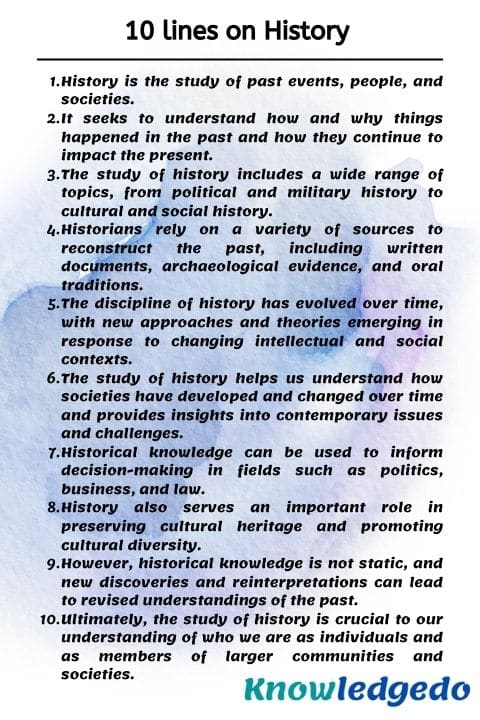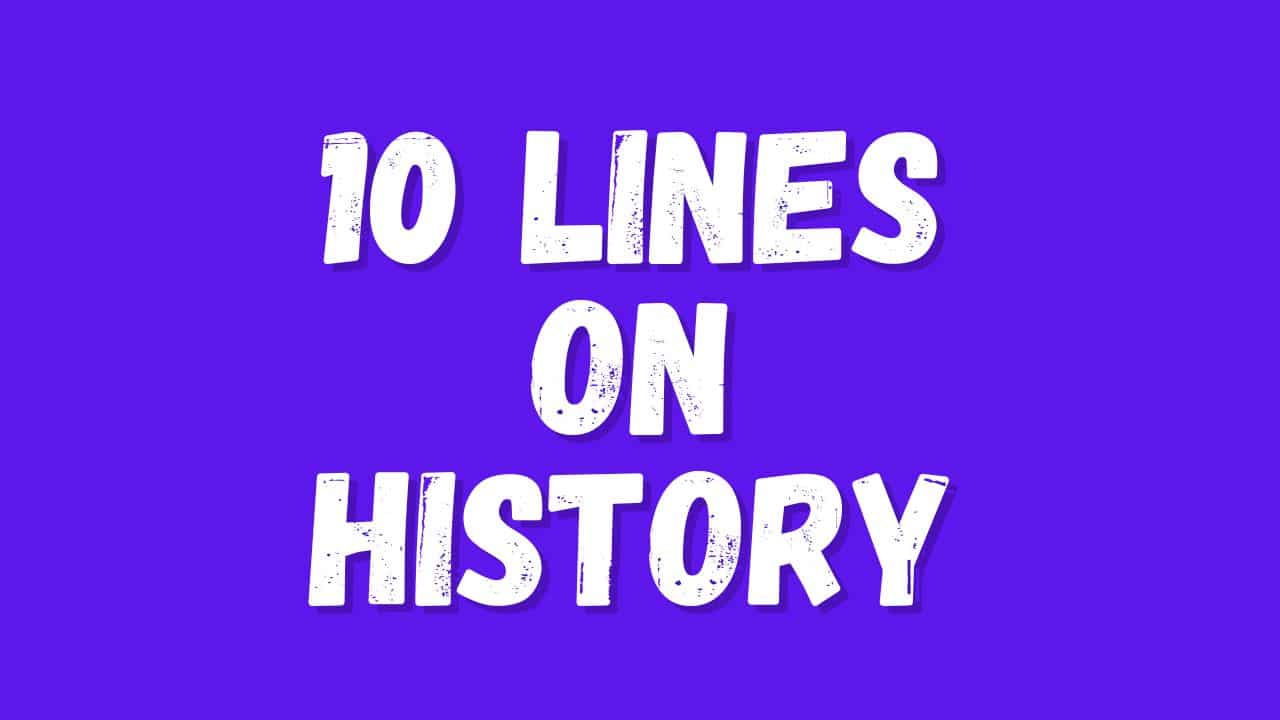Today, we are sharing 10 lines on History in English. This article can help students who are looking for information about 10 lines on History. This Lines is very simple and easy to remember. The level of these Lines is moderate so any student can write on this topic.
This article is generally useful for class 1,class 2,class 3,class 4,class 5,class 6,class 7,class 8,class 9,class 10,class 11,class 12
10 lines on History
1) History is the study of past events, people, and societies.
2) It seeks to understand how and why things happened in the past and how they continue to impact the present.
3) The study of history includes a wide range of topics, from political and military history to cultural and social history.
4) Historians rely on a variety of sources to reconstruct the past, including written documents, archaeological evidence, and oral traditions.
5) The discipline of history has evolved over time, with new approaches and theories emerging in response to changing intellectual and social contexts.
6) The study of history helps us understand how societies have developed and changed over time and provide insights into contemporary issues and challenges.
7) Historical knowledge can be used to inform decision-making in fields such as politics, business, and law.
8) History also serves an important role in preserving cultural heritage and promoting cultural diversity.
9) However, historical knowledge is not static, and new discoveries and reinterpretations can lead to revised understandings of the past.
10) Ultimately, the study of history is crucial to our understanding of who we are as individuals and as members of larger communities and societies.

5 lines on History
1) History is the study of past events and their impact on the present and future.
2) It helps us understand the development and evolution of societies and cultures over time.
3) Historical knowledge can be used to inform decision-making in various fields, including politics, economics, and social justice.
4) Historians rely on a range of sources, from written documents to oral traditions and archaeological evidence.
5) The study of history is an ongoing process, with new discoveries and interpretations continuously reshaping our understanding of the past.
FAQ
Answer: Studying history is important because it helps us understand the origins and development of human societies, cultures, and ideas. By learning about past events and their consequences, we can gain insights into the present and make informed decisions about the future.
Answer: Historians gather information about the past from a variety of sources, including written documents, artefacts, archaeological evidence, and oral traditions. They evaluate these sources for accuracy and reliability and use them to construct narratives that explain past events.
Answer: The study of history has evolved over time, with new approaches and theories emerging in response to changing intellectual and social contexts. For example, the emergence of social history in the mid-20th century shifted the focus of historical research from politics and military affairs to social and cultural trends. The development of digital technologies has also transformed the way historians gather, analyze, and present historical information.
